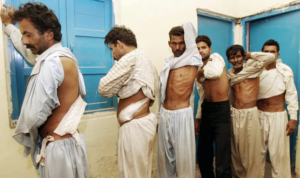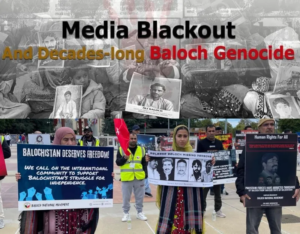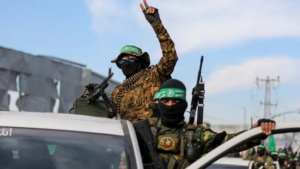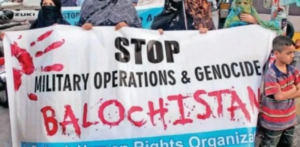
On July 31, 2022, al-Qaeda chief Ayman al-Zawahiri was killed in a US airstrike in Kabul.[1] He was living in a safehouse owned by a top aide of Sirajuddin Haqqani, the Interior Affairs minister of the Taliban regime.[2] Zawahiri was a Salafi theologian and was vocal about his hatred towards the US policy in the Middle East and on Israel-Palestine issue. He spoke regularly through al-Qaeda’s social media platform As-Sahabagainst the democratic regimes and provoked the vulnerable Muslim youth.
The air strike happened after nearly one year of US withdrawal from Afghanistan. The timing of the strike is curious as the Chief of Pakistan Army’s Inter-Services Intelligence Lt Gen Nadeem Anjum had visited the United States in the month of May meeting the National Security Advisor Jake Sullivan and Director of Central Intelligence Agency, William J Burns.[3] On the agenda was what could be the “role” of Pakistan in preventing terrorism emanating from the Afghanistan.
There is no doubt that Pakistan is anxious about the upcoming Financial Action Task Force (FATF) meeting in October 2022, and is desperate to get out of the grey list. Its economy is in the doldrums, with the US and the Saudi Arabia refusing to lend a helping hand.[4] Islamabad is desperate for support from America and remains in its good books. And it is no happen stance that soon after the killing of Zawahiri, on August 2, 2022, the International Monetary Fund (IMF) decided to release the seventh and eighth tranches of a US $ 6 billion loan to Pakistan.[5]
While the al-Qaeda helped Pakistan to promote its geopolitical interests, its continued presence in the Af-Pak theatre had become a liability for Pakistan Army’s Inter-Services Intelligence (ISI). Similar has been the case with Afghan Taliban. In August 2021, when Taliban took control of Afghanistan ousting the democratically-elected Ashraf Ghani government, Pakistan became one of Taliban’s main supporters on the international scene demanding equal representation at the UN[6], and pleading for financial assistance. However, in recent months, fissures have developed between the two “brothers in arms”. It started with a dispute over Durand Line and then escalated to include other contentious issues. The first one was Taliban’s harbouring of anti-Pakistan terror group the Tehrik-e-Taliban Pakistan (TTP) and the other was the Baloch Liberation army (BLA), which is strongly against the Chinese investments in resource rich region and rumours of merger between TTP and BLA.
The BLA’s activities have directly impacted the Chinese investments. Pakistan policy makers are worried that given the financial crunch and omnipresent democratic instability, it doesn’t have a bandwidth to counter both BLA and TTP together.
The Chinese angle is another pressure point for the Pakistan to behave like a good boy and gain brownie points from Beijing, so that Pakistan doesn’t loose the only ray of hope in terms of economic investments. Therefore, terrorism has proved to be a double whammy for Pakistan. To protect its economic interests, Islamabad and Rawalpindi have been forced to offer intelligence and air support to the United States’ counter-terrorism operations. And same has been the case with the operation in Kabul targeting Zawahiri.
While Islamabad and Rawalpindi and even the Taliban would deny any sort of support to the United States, there are no points for guessing that in order for the operation to be swift the closest and direct route remained a Pakistani military base or its airspace. The preparation for the airstrike likely began a couple of months before the D-day which coincided with the ISI chief’s visit to the United States in May.
Even in the case of Osama bin Laden, Pakistan had provided close support to the United States. Pakistan is known for a “walk-in” selling information proposal about High-Value Targets. But whenever it has done so, it has bartered and bargained. It mostly happens under two scenarios, firstly, if Pakistan has its own domestic compulsions like, financial challenges or the FATF pressure and secondly, when they know that the ‘target’ in demand is redundant and obsolete for them. This is essentially the Pakistani double-dealing. It has done this even to escape international pressure like in the case of the 2008 Mumbai attacks, when it held the masterminds of the attack, only to be released later.
This is the Pakistani duplicity which threatens regional stability. This attitude by Islamabad propels it to nurture some of the most wanted terrorists and shield them from those who demand justice, even as these terrorists persist in their activities. Therefore, it is important to have a continuous monitoring of Pakistan’s support to these destructive elements to avoid breeding of more terrorists like Laden and Zawahiri






